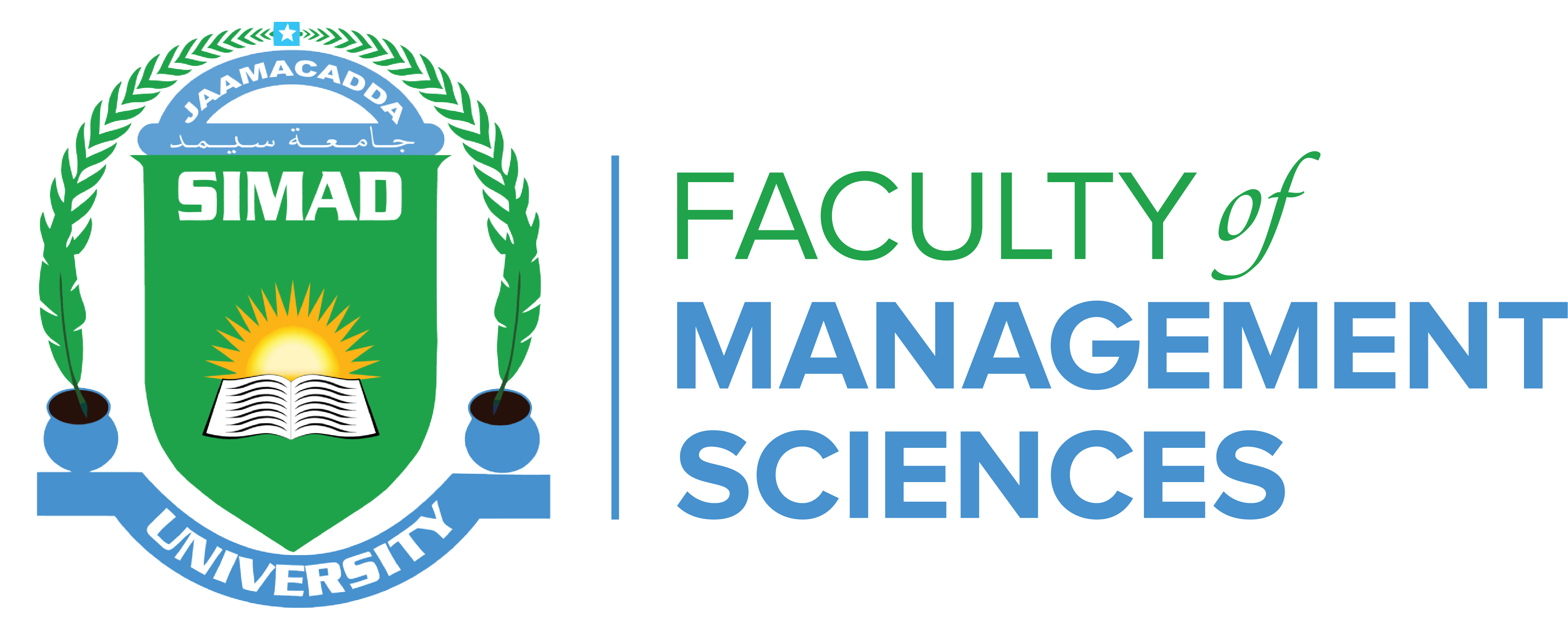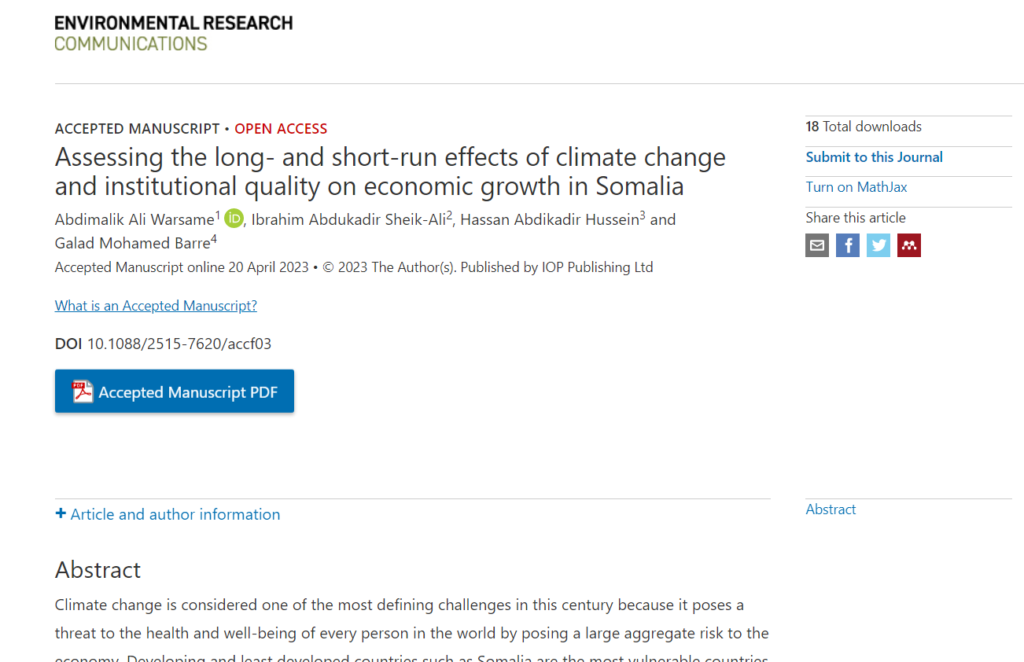Climate change is considered one of the most defining challenges in this century because it poses a threat to the health and well-being of every person in the world by posing a large aggregate risk to the economy. Developing and least developed countries such as Somalia are the most vulnerable countries to climate change consequences. Besides the vulnerability to climate change, government institutions in Somalia have been malfunctioning since 1991 hence affecting economic growth. Hence, this empirical work addresses the long-and short-run effects of institutional quality and climate change on economic growth in Somalia for the period 1985-2017 using the autoregressive distributed lag model (ARDL), Johansen and Juselius Cointegration, and dynamic ordinary least square (DOLS). Average temperature and rainfall, and law and order are taken as measurements of climate change and institutional quality respectively. The empirical results found that institutional quality and climate change are cointegrated into economic growth in the long run. Furthermore, average rainfall, law and order, and capital stimulate economic growth in Somalia in the long run; whereas the average temperature has a devastating effect on economic growth in the long run. Notably, law and order hamper economic growth in the short run. These results are robust for various econometric methods. However, the study proposes implementing policies related to climate adaptability and mitigation strategies, and improving institutional quality such as; law and order, government effectiveness, and bureaucratic quality, as these will confirm sustainable economic growth in the long run. Click Here
Supplementary Exam
Please be informed that the University Supplementary Examinations will be held on Monday, September 16, 2024. Supplementary Exam..


